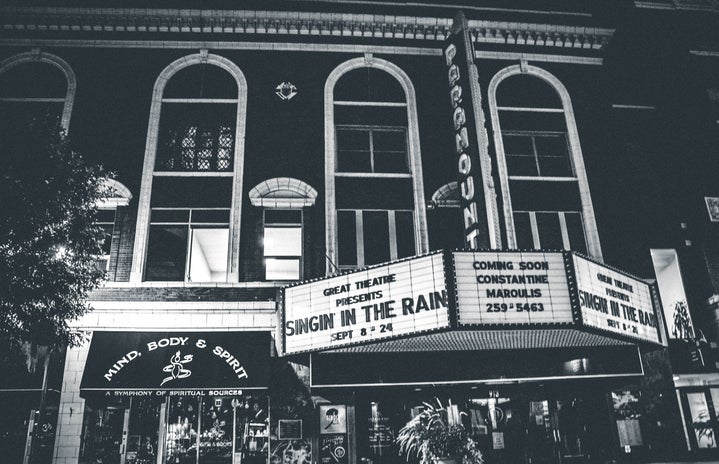In the past few years, Hollywood has been churning out biopic after biopic, with a strong focus on famous past performers. In 2021 we saw films like Respect (a film about Aretha Franklin), The United States vs Billie Holiday (the rise of Billie Holiday and her encounters with the law), Spencer (a psychological almost-thriller about Princess Diana), and King Richard (which follows the story of Venus and Serena Williams’ father coaching them from a young age). In 2022, we’ve seen even more, such as Elvis (a re-telling of Elvis Presley’s life), Blonde (a Marilyn Monroe story based on a fictional novel), and even Mike (a series about Mike Tyson’s life). And that’s not all; more biopics are currently in the making, namely ones following the lives of Whitney Houston, J. Robert Oppenheimer, Bob Dylan, Cher, and Weird Al Yankovic. So what does this mean? Has there been a resurgence of biopics in the film world? Or are we trying to hold onto the past?
How the notion of “celebrity” has shifted throughout the years
As audience members, including both film fanatics and casual viewers, the appeal of the biopic hasn’t worn off yet, and in saying that, there’s no reason for Hollywood to stop making them. Yet I wonder if we only watch these films because of the way they are produced: they glamourize the high-life and tug on our emotions, both good and bad, to make us feel truly connected to the artist behind the film. They each carry a distinctive style to them, whether that be subdued and melancholic like Spencer, or the over-the-top glitz and glamour of Elvis. These biopics take us back to a time of before – a time where old Hollywood stars dominated the world. For people in their 20’s, this world is vastly different to the one we know, and there’s something extremely appealing about that, at least for me.
I’ve recently been intrigued in the difference between old Hollywood stars and the current version of celebrities. The primary difference that I see in them is that Hollywood stars tended to have a sense of privateness, and they were elevated to this glamourous, movie-star, unattainable level, whereas nowadays with the rise of the internet, celebrities are everywhere all the time. Paparazzi are shooting them walking their dogs, doing their morning coffee run in their pyjama’s, and they themselves are regularly on social media connecting with their millions of followers. The divide between private and public is almost entirely gone now, and with that line blurred, so goes the idea of them being unattainable.
Kim Kardashian donning Marilyn Monroe’s dress: respectful or rude?
A hot topic of discussion that emerged after the 2022 Met Gala was Kim Kardashian wearing one of Marilyn Monroe’s dresses. The question has been asked: was she paying respect or profiting off of a past idol? Kim didn’t fit into Marilyn’s dress, and the dress is now partially ruined because of it. There have been many arguments put forward about whether it was right or wrong for her to wear the dress in the first place. And honestly for me? I don’t think it was. Marilyn Monroe’s life has been used and abused by so many people, and her identity has been made into a profit-seeking one. Right now, at the end of 2022, it feels like Marilyn Monroe is no longer a real person but rather a fictionalized being that can be adjusted to fit anybody’s narrative. As a modern-day celebrity who is known for her fashion sense, as well as having no connection to Marilyn whatsoever, Kim had no reason to wear Marilyn’s dress, and her ruining it feels like a part of history has been destroyed.
How many of these biopics get permission from the family?
In a similar way to Kim wearing Marilyn’s dress without permission (she got denied wearing the dress the first time she asked because she didn’t fit into it), these movies and TV shows about celebrities are being produced without permission from either the person if they are still alive, or from the family. The TV show Mike for example, was never approved by Mike Tyson, and he has subsequently stated that he is not getting compensation for his life story from Hulu. This can put viewers in a sticky situation: do you support the artist who is still alive and said that he never agreed to the show being made? Or do you watch the show out of curiosity and because you want to learn more about his life? Similarly, Netflix has recently produced a show called Dahmer which follows the life of serial murderer, Jeffrey Dahmer. In the show, there is a sequence that re-creates a court scene where one of his victim’s sister talks about the murder and suffers an emotional breakdown. Her family have stated on social media that the show is just “retraumatizing over and over again” as they have already lived through the pain. Situations like these beg the question: do these biopics need to be made? Or are big companies just profiting off of “interesting” and attention-grabbing stories?
Final thoughts
As interesting and fun as biopics are to watch, it seems that they can do more damage to the people involved, and are merely for the audience’s pure enjoyment. Perhaps there should be more boundaries in place when making these films, or have family members and close contacts directly involved so they are realistically and respectfully produced. Sometimes it’s better to just leave the past in the past, and we can look back with memories rather than try to re-animate these past celebrities.

